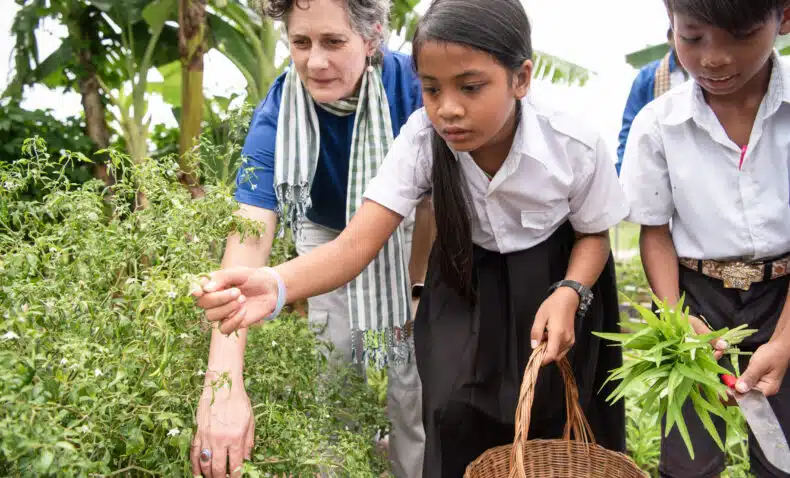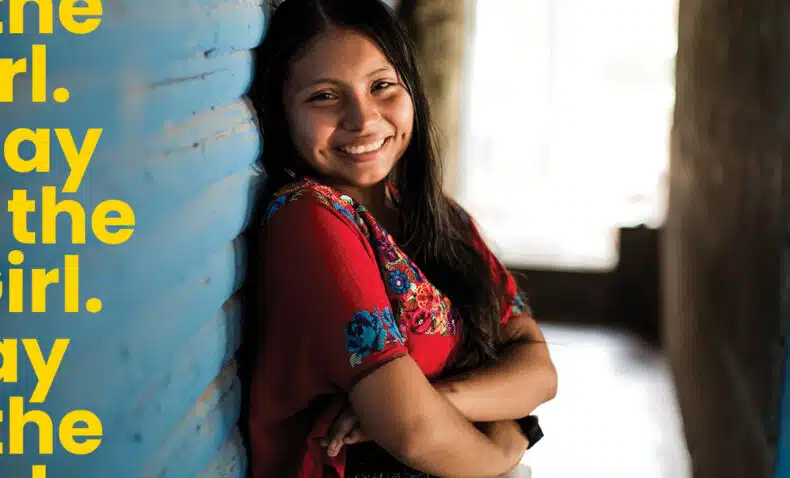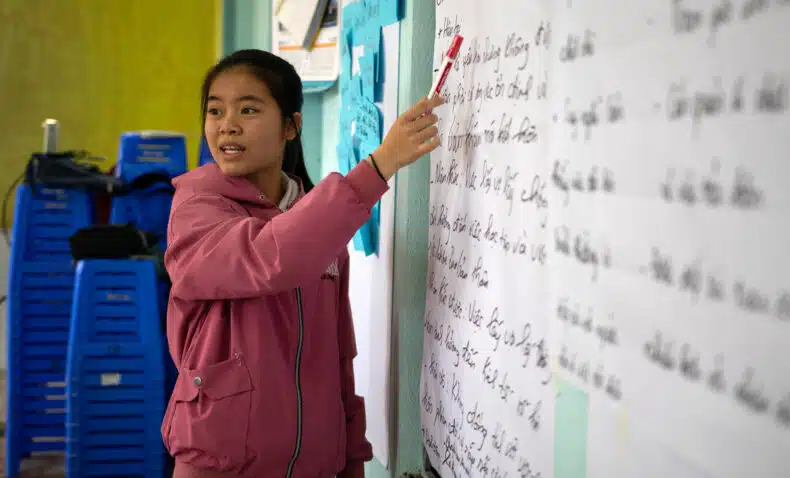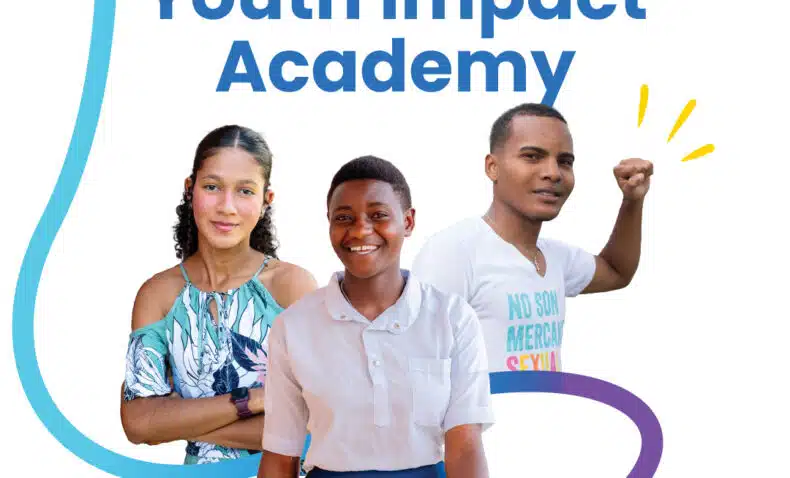Here’s how we’re helping keep girls safe
The fear of violence robs girls of their freedom to move freely in their own city. It makes emergencies and conflict more dangerous. It excludes them from fully participating in a society that belongs just as much to them as it does to their male peers.
Plan International is working with girls, boys, communities and decision makers to build a safer world for girls. We are including the voices of young people, especially those most vulnerable in the redesign of cities. We are also introducing the world’s first open source, rights-based digital birth and death registration software products to protect the rights of children.
From grassroots advocacy led by girls to child protection programs in areas of conflict, we’re eroding the attitudes that allow violence against girls to flourish.
And best of all, we’re centring girls as agents of change in their own communities.
The role of men in ending violence against women
Protecting girls from violence is a core part of our work. But truly overcoming gender inequality is only possible by including boys and men. That’s why we work with people of all genders to discourage norms and behaviours that perpetuate violence and encourage healthy relationships between men and women from a young age.
By raising boys to know that violence is never acceptable, we’re eradicating the sexism and misogyny that can fuel it and raising a new generation that says no to violence in all its forms.
Our research
All of our overseas program work is informed by evidence, and we’re always learning. Read our latest reports and publications on gender-based violence and for adolescent girls in crises.
Your support can mean girls and young women around the world are free from violence
Lost in conflict: Kaka’s story
At the age of eight, Kaka* became separated from her parents after her village was attacked by armed men. She fled to Chad for a while, before returning to her home in Diffa region, Niger. Unable to find any of her family members, Kaka says she felt alone and abandoned. Fortunately, she met Fatimé who became her guardian and took her into her home.
With support from Plan International, 16-year-old Kaka is now receiving the help she needs. She often takes part in training sessions on gender-based violence organised by the village protection committees and has learnt tailoring skills so she can earn an income.
Thanks to this support I am independent. This has given me hope and allowed me to regain my dignity. Today, I am very busy with my job. I am happy- Kaka
*Name has been changed to protect identity.
Fighting gender norms through karate
Having loved watching karate on television as a child, when the opportunity arose to take part in lessons, 12-year-old Masuma was keen to sign up, but first she had to persuade her parents to give her their permission. “At first they didn’t want to let me go, but I told them that if I had this training, I would be able to defend myself if I faced any problems on the street.”
In total, seven girls from Masuma’s school signed up for the classes. Arriving for their first lesson, they met the rest of the participants who come from other high schools in the area. “On the first day of training, we met the other girls and our trainer. In the first 10 days, we learnt Jhuki, Uki, Geri and Dachi and were given karate clothes.”
175 girls have so far taken part in karate training in seven different groups across seven communities in Nilphamari and Rangpur districts. The training takes place over 32 days, with 2 hours of training each day. Over the course of the training sessions, the girls are taught more than 150 self-defence techniques
I wanted to learn karate so that no one would treat me badly or make bad comments and at the same time I can react if something happens to me. Everyone has respected me more since I learnt karate.”Photo: Masuma, 12, practises her karate skills during training. © Plan International




